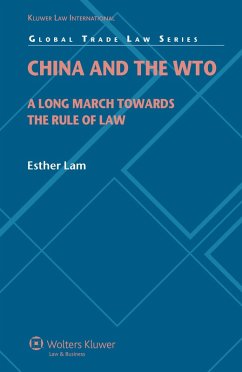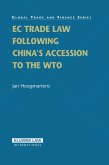Joining the World Trade Organization (WTO) enables China to reform its legal order and to move towards a system incorporating major principles of the rule of law. The WTO also serves as an external impetus that guides contemporary Chinese legal reform and orients it in ways that domestic forces alone could not achieve and sustain. Much discussion on the WTO and the Chinese legal system has focused on the issue of compliance whether the Chinese legal system has the capacity to fulfill Chinas WTO accession commitments. The focus of this work is less concerned with compliance issues per se, but rather with the extent to which the WTOs requirements vis--vis China actually affect the Chinese legal system. The fine difference between the two approaches lies in the fact that efforts by the Chinese government to meet its WTO obligations necessarily impact the Chinese legal order and its way of functioning, even if their end results may or may not lead to full compliance with what is required of it by the WTO. This timely work exposes many behind-the-scene dealings and relies on valuable information that is not publicly available. Not only does it preserve for the historical record important details of the Chinese WTO accession, it also sheds light on the travaux prparatoires of Chinas accession agreement and the negotiation history of important issues, some of which remain relevant and highly contentious today. As expressed by WTO Director-General Pascal Lamy in his foreword to the book, through this work, Esther Lam succeeds in demonstrating how WTO membership can benefit both the acceding country and the wider WTO family of nations.
Dieser Download kann aus rechtlichen Gründen nur mit Rechnungsadresse in A, B, BG, CY, CZ, D, DK, EW, E, FIN, F, GR, HR, H, IRL, I, LT, L, LR, M, NL, PL, P, R, S, SLO, SK ausgeliefert werden.









